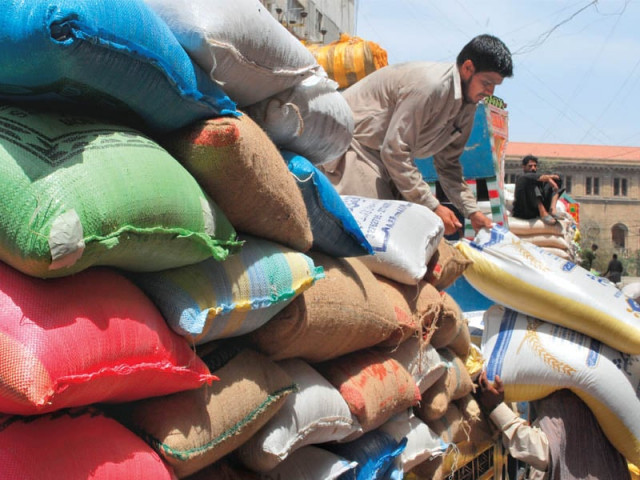The Federal Constitutional Court has set aside the judgment of the Sindh High Court in the subsidized wheat sale case, in favor of the Sindh government. The Court observed that policy making is the responsibility of the executive.
A three-member bench of the FCC, headed by Chief Justice Aminuddin Khan, heard the appeal of the Sindh government against the decision of the Sukkur bench of the Sindh High Court (SHC) dated May 31, 2023.
A complaint was filed with the SHC in 2023. The petitions were filed by owners, licensees and partners of various flour mills who alleged that since the start of the new wheat liberation policy, the officers of the Food Department of the Sindh government were not issuing them wheat quota, referring to the subsidized wheat for milling.
The petitioners contended that they had contacted the State but were refused, alleging that the current petitioners or former owners or licensees of these mills had cases against them with the National Accountability Bureau (NAB) and that as per the wheat policy, no quota could be given to anyone who entered into a plea bargain with the NAB.
The SHC ruled that “individuals or organizations are not permitted to impose their own sanctions outside the legal system, as this may constitute an act of self-defense or other illegal activity.”
“The residual effect of the above discussion is that any excessive penalty imposed by the Wheat Liberation Policy beyond what has been prescribed by the 1958 Act in terms of penal provisions, including those relating to NAB convictions or plea negotiations dealing with the circumstances and situation, is considered extraneous to the object of the 1958 Act as well as extrajudicial, therefore unconstitutional in our view, therefore void.”
“Thus, also proceed with the discontinued authorizations and immediately make wheat quotas available to the petitioners if they are otherwise qualified under the law.”
The FCC judgment said: “The Sindh High Court, sitting at Sukkur, erred in interfering with the legitimate powers and authority of the executive in the course of its proper functioning within the scope of its powers and authority.”
Sindh Additional Advocate General Sibtain Mahmood appeared before the court, arguing that the guidelines issued by the SHC were not in accordance with the Constitution of Pakistan. “Only the executive has the power to formulate policies,” argued Additional Attorney General Manawwar Duggal.
“The executive defines the policy and then announces it,” observed Judge Ali Baqar Najafi.
The appeal of the Sindh government was allowed and the SHC judgment was set aside.




